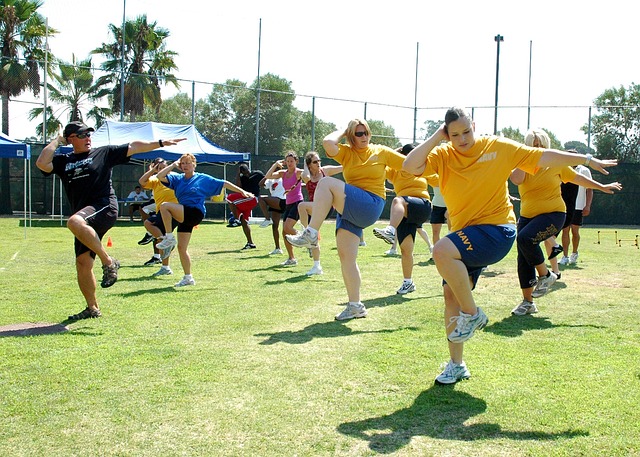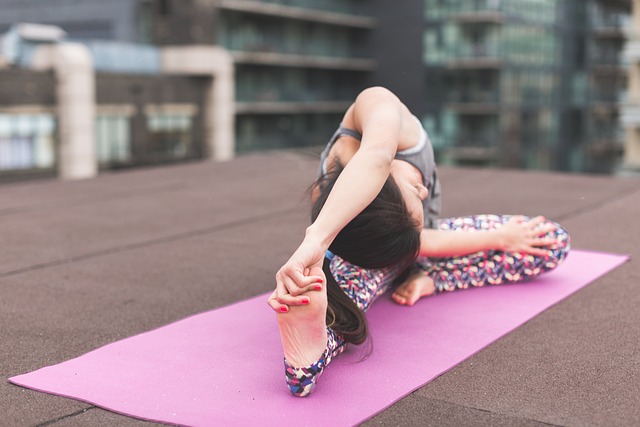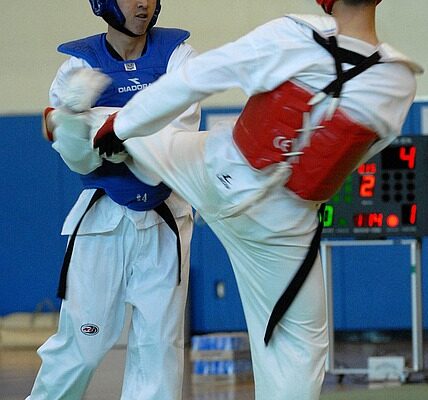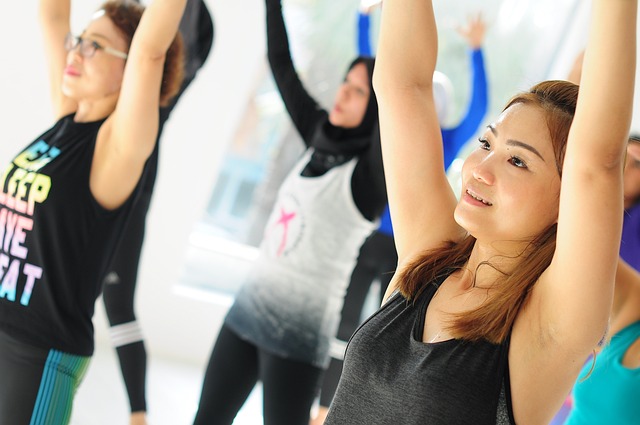Here are the benefits and drawbacks of group fitness competitive classes. Examine your personality, general fitness goals, and what motivates you to work out on both sides. This will assist you in determining whether group exercise courses are right for you.
You’ve probably gotten special offers for group exercise sessions in your email. Or perhaps your buddies have shared photos of themselves at the quaint neighborhood boutique gym. Perhaps your city or town has fitness classes that sound appealing and would help you to get in shape with novel methods.
But there’s something holding you back from trying out group classes. While meeting new people and trying different activities may sound like fun, you may be concerned about feeling ashamed to exercise with others. Is it a competitive atmosphere that keeps you away?
Trust me; you are not alone in feeling this way. It is normal to be worried about competing and to feel intimidated at the gym. Fitness classes frequently bring out (or promote) people’s competitive side, which isn’t always a bad thing.
Group Fitness Class Statistics
According to Nielsen’s research of over 3,000 group fitness classes throughout the world, 85% of class participants visit a facility or gym twice a week specifically to take a fitness class, and 43% visit a facility four times a week specifically to attend class.
Group fitness programs are so popular that they have the potential to attract anchor tenants. According to the ACSM (American College of Sports Medicine’s) 2019 study of fitness trends, group exercise studios can attract additional businesses to commercial real estate strip malls.
SoulCycle, an indoor cycling program, for example, welcomes exercisers into class two to four times each week. Before or after class, these motorcyclists could shop or eat at neighboring establishments. As a result, the appeal of other similar-minded stores is strong—your target demographic is already present. You might not even need to spend money on marketing.
Advantages of Group Fitness Classes
If you want to try a boutique fitness class, recognizing the positive ways in which competition plays a part in these sessions may entice you to enroll.
Increased Self-Esteem
Competing with others in exercise classes might help rather than undermine your self-esteem. In a study published in Scientific Reports in 2016, Researchers discovered that working out with others delivers a great sense of self-esteem and social capital when compared to working out alone.
Goals are being met.
Competition might motivate you to reach your fitness objectives faster. Working out with like-minded people, such as those in a boutique barre class, helps keep you motivated to achieve your goals, according to the American Heart Association.
Time Spent Outside
Even in a competitive situation, exercise can feel less difficult when done outside. If you despise the competitive nature of fitness programs, you should consider outdoor boutique exercise fitness services rather than indoor ones.
A 2013 review of outdoor exercise published in Extreme Physiology & Medicine discovered that exercising outside seems easier than exercising inside. According to the researchers, this is related to visual cues. Viewing nature can act as a diverting stimulus, reducing the sense of exertion.
As an added advantage, anyone who feels unsafe going out alone in a park or on a path can benefit from the safety net of others by enrolling in an outdoor class.
Motivation To Workout
When it comes to inspiring you to exercise, nothing matches friendly encouragement. In a 2016 study funded by the National Cancer Institute’s Center of Excellence in Cancer Communication Research, researchers discovered that rivalry genuinely boosts your activity.
800 Penn graduate and professional students signed up for weekly lessons at the university fitness center during an 11-week training program. The 800 students were divided into four groups by the researchers: solo competition, team support, team competition, and a control group:
Participants in the individual group might examine the leaderboards of anonymous program participants. They were also rewarded for their efforts in attending classes.
Students used an online format in the team support group to discuss and urge members to exercise. The most successful teams in terms of class attendance received prizes.

Participants in the team competition category could see where their team stood.
Exercisers in the control group just took courses and got an award based on their own performance.
The results demonstrated that competition motivated individuals to exercise. In fact, the competing groups had more than 90% greater class attendance rates than the control group. The exercise rate in the team support group was half that of the competing groups.
Better Attendance
Fitness class rivalry can motivate you to attend class. (Just be careful not to overload yourself at first by doing too much too quickly.)
Penn State University researchers devised a fitness routine that mimicked the Physical Activity Guidelines for Fitness in a 2015 study published in Frontiers in Psychology to examine the effectiveness of group exercise to help onboard members. A 30-week group exercise program was completed by 15 women and 10 men aged 25 to 40.
Fitness sessions were added after a six-week familiarization period; researchers intended this to be a progressive procedure that did not overwhelm members.
A 12-week block of six group exercise classes per week, three of which are aerobic, two of which are strength, and one of which is flexibility.
A 12-week block of seven group exercise classes per week, four of which are aerobic, two of which are strength, and one of which is flexibility.
Competition and intrinsic desire fueled exercise adherence, resulting in a 98.8% compliance rate.
The Drawbacks of Group Fitness Classes
Working out in one of these rapidly expanding boutique fitness sessions isn’t for everyone. The negative characteristics of competition in these classes may cause a loss of interest or participation.
Burnout
Trying to attend every class, top others’ leaderboard scores, and compare yourself to the next person can all lead to burnout. This burnout can even permeate other aspects of your life, leading to a life devoid of joy.
According to the ACC (American Council on Exercise), if any of the following phrases apply to you, you may be suffering from burnout:
- I’m tired of being bored. My job no longer excites me.
- Energy? In the morning, I can hardly get out of bed.
- I’d rather be doing anything else—anything.
- I can’t seem to concentrate or complete an assignment.
- I’ve been arriving late to work a lot recently. Some days, I simply refuse to enter.
- I’m about to lose it if I have to listen to another client’s or coworker’s complaints!
- I can’t unwind or even sleep because I can’t relax sufficiently.
- I’m depressed.
- I’m taking drugs or booze to get through this difficult moment.
If any of these “I” statements apply to you, you should reduce your exercise regimen and instead work on a plan of action.
Dysmorphic Disorder of the Body
Group fitness classes can exacerbate body dysmorphia. Body dysmorphic disorder might worsen when competing with people who appear to be in better shape than you. If you have this disorder, you should consult with a medical practitioner before enrolling in a competitive fitness class.
Almost 40% of people in the research said they used workout supplements without consulting a doctor. Before seeking out a setting that may make you feel worse, make sure your mental health is in order.
Injury Possibility
If you are continually competing with the next person, you may become harmed because you do not consider your own limitations. If the person next to you spins faster, and at a higher resistance, you may wind up turning up the dial and going home with shin splints instead.
Overexertion was responsible for 36.2% of all workout injuries in a survey of 2,873 cases reported in Injury Epidemiology. It’s sometimes safer to merely compete against yourself.
Cost
The cost of a class can magnify your inadequacy to people who are wealthier than you, which is not a healthy form of competition. How? A single 45- to 60-minute lesson can cost the same as a month’s gym membership.
So, for those on a tight budget, paying upwards of $40 per lesson may seem extravagant. Most franchise gyms charge between $30 and $40 a month and include their own exercise sessions in the fee.
The Best Group Fitness Studios
If you determine that a boutique fitness class is perfect for you, these organizations have classes that you might be interested in trying.
SoulCycle
This indoor cycling group pushes riders through a workout in a dark, candlelit setting by using high-energy music and motivated instructors.
Flywheel
This group provides a similar party-style riding environment to SoulCycle but raises the competition level. Riders can connect to a TorqBoard to track their progress and compete in the class. In order to make the session more demanding and engaging, instructors devise numerous obstacles.
Cycling lessons are the most popular boutique fitness classes, according to the Association of Fitness Studios. They make 55% more money than comparable fitness studios.
PureBarre
Exercisers enjoy Pure Barre classes because they include postures inspired by ballet, yoga, and Pilates. A barre is used for balance, just like a ballerina would. However, a ballet background is not required to excel in class.
Fitness Orangetheory
You’ll train using a high-intensity interval training (HIIT) strategy in each 60-minute class, cycling through the treadmill, rower, and floor activities. Each class focuses on a different style of training: endurance classes include extended periods of time on the treadmill and high reps on the floor, strength classes include uphill treadmill climbs and heavy weights on the floor, and power classes focus on speed.

Yoga with CorePower
CorePower Yoga, the largest yoga studio chain in the United States, bills itself as a yoga studio that provides modern, roomy spaces with thoughtful, highly physical practices that use every muscle in the body.
SolidCore
To target slow-twitch muscle fibers, one fitness organization modified the standard Pilates reformer. Participants move their bodies 1 inch at a time, which is substantially slower than in other Pilates programs.
Pilates Club
In this revolutionary hybrid Pilates style, you can work your core with moderate, steady Pilates workouts.
To Conclude
If these group fitness class benefits convince you that a competitive group environment is right for you, that’s fantastic! However, if you are still not certain that competitive culture will help you feel motivated or at ease in a group exercise class, that is perfectly fine.
Put no extra pressure on yourself to try something new or join a boutique class if it doesn’t feel right. Whatever form of exercise you select, be sure it makes you feel good—physically and mentally.

